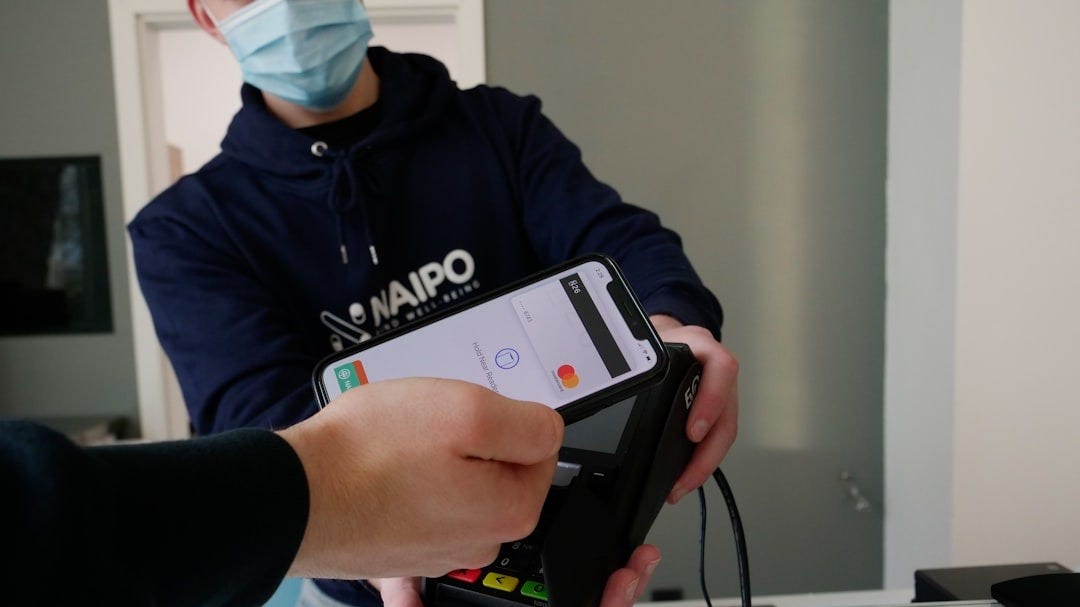European Union Ends Apple Pay Antitrust Probe
EU Ends Apple Pay Antitrust Probe with Binding Commitments to Open Contactless Payments.

Disclaimer: The information presented in this article is based on publicly available data and is intended for informational purposes only. It does not constitute legal, financial, or professional advice.
Real-time information is available daily at https://stockregion.net
The European Union has concluded its extensive antitrust investigation into Apple Pay, resulting in binding commitments from Apple to open its contactless payment system to competitors. This decision marks a development in the regulatory scrutiny of dominant tech companies and their control over digital ecosystems. Apple, a leader in smartphone technology, is now required to allow rival mobile wallets access to NFC (Near Field Communication) functionality on iOS devices. This move will enable "tap and go" payments without necessitating the use of Apple’s proprietary technology.
The European Commission, the executive arm of the EU and its top antitrust enforcer, initiated this investigation in 2022. Regulators accused Apple of abusing its dominant market position by restricting access to its mobile payment technology, thus limiting competitive innovation and consumer choice. This investigation forms part of the EU's broader agenda to ensure fair competition and curb monopolistic practices in the digital economy. Apple was specifically accused of blocking rival mobile wallet providers from using the NFC chip embedded in its iPhones. NFC technology allows devices to communicate wirelessly with payment terminals, facilitating secure and swift transactions. By restricting access, it was alleged that Apple was unfairly maintaining control over a segment of the mobile payment market, potentially stifling competition and innovation.
In response to these allegations, Apple proposed in January 2024 to grant third-party mobile wallet and payment service providers access to the NFC functionality in its iOS operating system. This proposal underwent several rounds of testing and feedback, leading to further refinements by Apple. The European Commission reviewed these final commitments and determined that they adequately addressed competition concerns.
On Thursday, the European Commission formally approved Apple's commitments, making them legally binding. Margrethe Vestager, the commission’s executive vice-president for competition policy, announced the conclusion of the investigation during a press briefing in Brussels. She emphasized that the commitments would bring changes to how Apple operates in Europe, benefiting both competitors and consumers.
For the Market
This decision is poised to have far-reaching implications for the mobile payment industry in Europe and potentially beyond. By opening up access to its NFC technology, Apple is effectively leveling the playing field for other mobile wallet providers. One of the most immediate benefits of this decision is the increased choice for consumers. iPhone users in Europe will now be able to set a default wallet of their choice, rather than being limited to Apple Pay. This freedom of choice can lead to a more competitive market, where different providers vie for consumer loyalty through innovative features and attractive incentives. For developers, this decision opens up new opportunities to leverage important iPhone verification functions such as Face ID, enhancing the security and user experience of their applications. With access to NFC functionality, developers can create and promote their own mobile wallets, potentially offering unique services and rewards to attract users.
The financial dynamics of the mobile payment industry are also expected to shift. Analysts suggest that there will be financial incentives for companies to use their own wallets rather than relying on Apple Pay. Currently, Apple charges banks a fee of 0.15% for each credit card transaction processed through Apple Pay. By using alternative wallets, banks could reduce these fees and pass on savings to consumers in the form of lower costs or additional benefits such as cashback or loyalty rewards.
Data Ownership and Customer Insights
Another advantage for companies using their own apps for tap-and-go payments is the ability to gain full visibility of their customers’ transactions. This data can be invaluable for building brand loyalty and trust. Companies can offer more personalized services, rewards, and promotions directly to users, enhancing the overall customer experience. This decision by the European Union is part of a broader trend of increased regulatory scrutiny of big tech companies globally. On both sides of the Atlantic, regulators are examining the practices of dominant players in the digital economy to ensure fair competition and protect consumer interests. In the United States, the Department of Justice has also been investigating Apple’s payment technology. A comprehensive lawsuit filed in March 2024 accuses the company of creating an illegal monopoly in smartphones, including allegations of limiting access to contactless payment options for third-party digital wallets.
The EU's decision may prompt similar actions in other regions, encouraging regulators worldwide to take a closer look at the competitive dynamics of the mobile payment market. Moreover, it sets a precedent for how dominant tech companies might need to adjust their practices to comply with antitrust regulations, promoting a more open and competitive digital ecosystem.
The European Union’s resolution of the Apple Pay antitrust probe with binding commitments represents a critical step towards fostering greater competition and innovation in the mobile payment market. By mandating that Apple open its NFC functionality to rival mobile wallets, the EU has ensured that consumers will benefit from increased choice and potentially lower costs. For developers and financial institutions, this decision unlocks new opportunities to enhance their services and build stronger relationships with customers.
As the mobile payment landscape continues to evolve, this decision will likely have a lasting impact, influencing regulatory approaches and competitive strategies worldwide. It highlights the importance of maintaining a balance between fostering innovation and ensuring fair competition, ultimately benefiting consumers and the broader economy.
Disclaimer: The information presented in this article is based on publicly available data and is intended for informational purposes only. It does not constitute legal, financial, or professional advice.
Real-time information is available daily at https://stockregion.net


